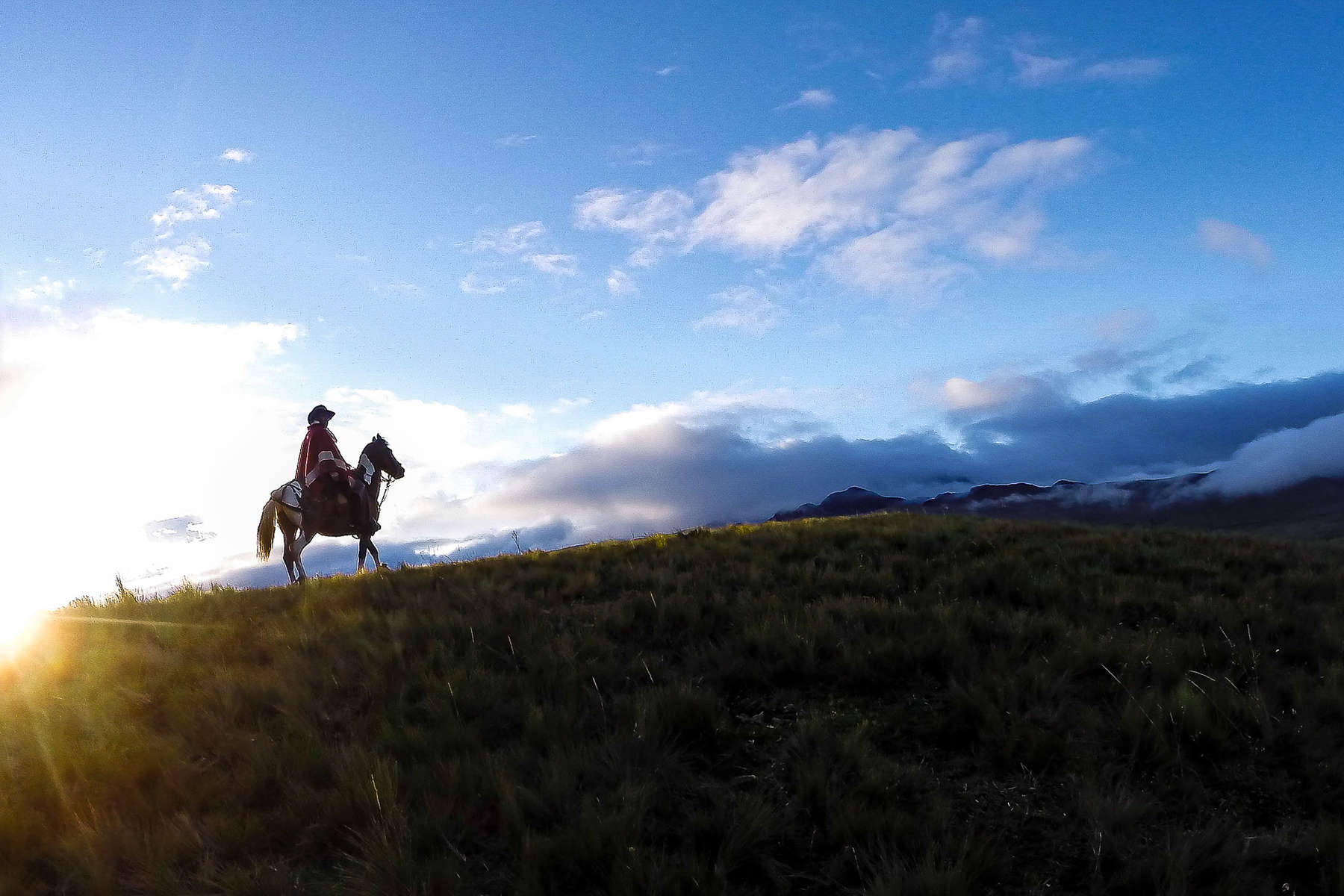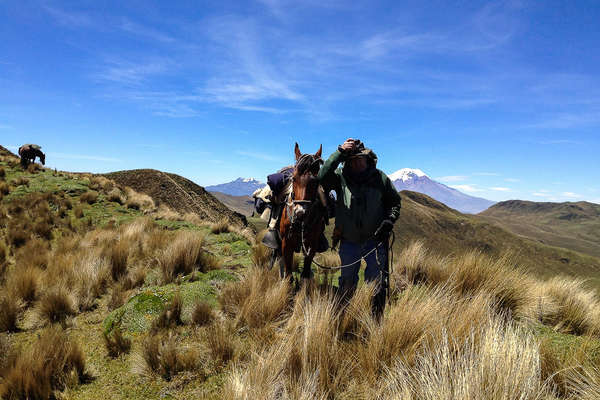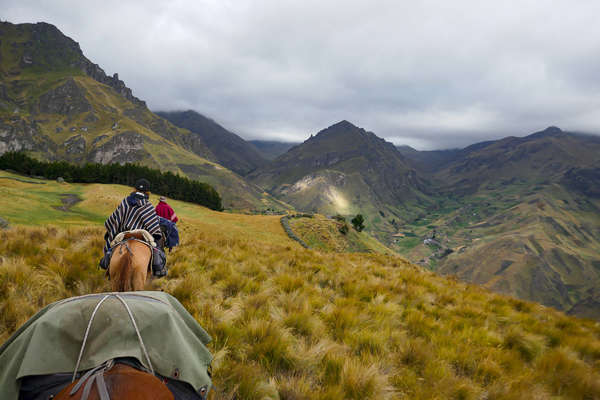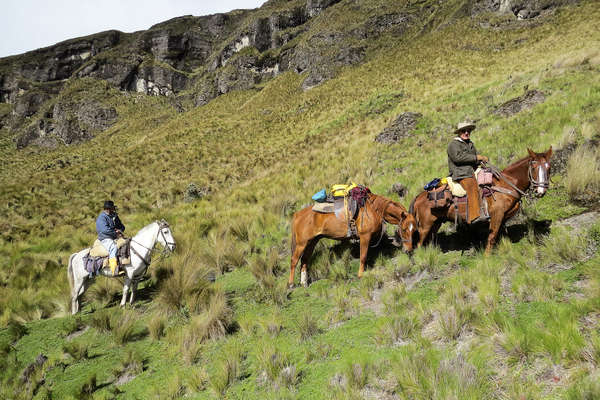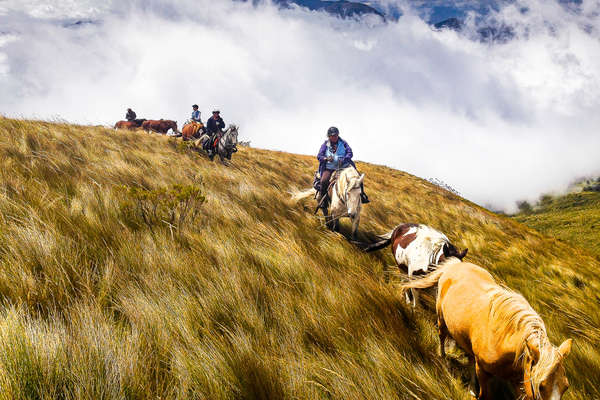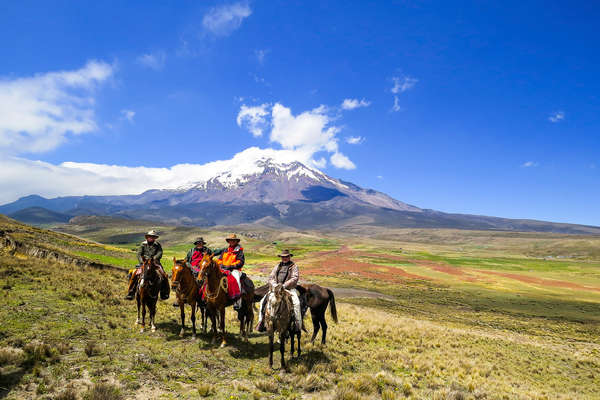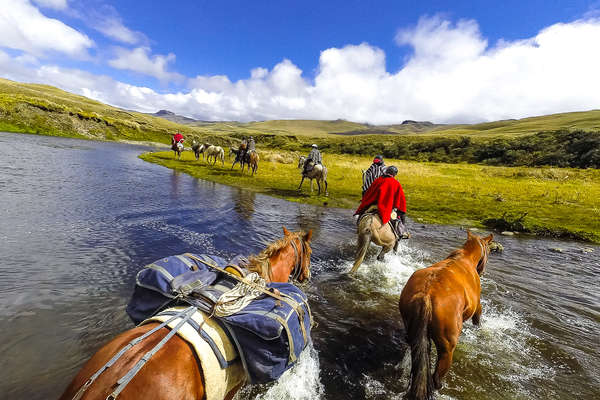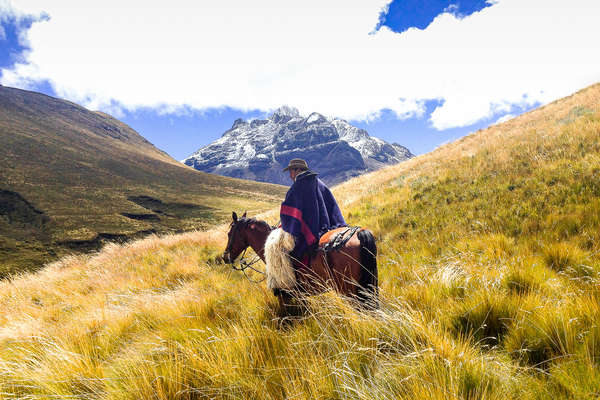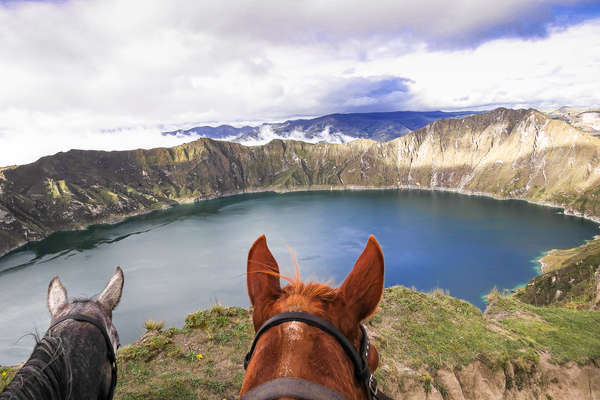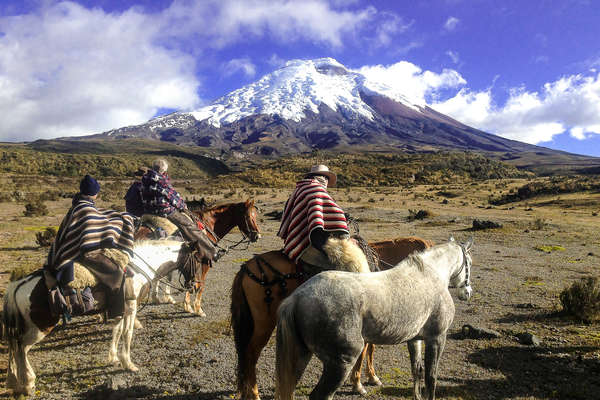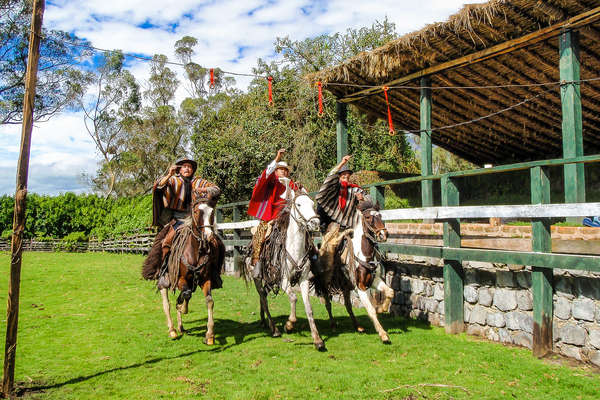Comfort
You stay in a variety of accommodation from haciendas and refuges. Some of the haciendas are more rustic than others and refuges may provide dormitory accommodation.
Meals
Meals are produced each day by your guide. Lunches are taken as picnics in the saddle bags and dinner will be warm and hearty. Local produce is used wherever possible and is of high quality.
Be careful if drinking water from unknown sources and ask for boiled water or mineral water if you are unsure. You could also take purification tablets.
Climate
The weather can be unpredictable and it is not unusual to experience all four seasons in one day. It can be sunny, windy, cloudy or rainy and the whole range of variations can occur within a matter of hours. Temperatures can fluctuate from 7c - 10c or even as high as 25c.
At lower altitudes the weather is less variable and can be warm and sunny throughout the dry season, which is usually around June - September and December.
Tips
It is customary to tip in Ecuador. Porters in airports and hotels will expect c. USD 1 per bag. City restaurants will include both tax and a 10% service charge, but smaller restaurants may not include tax or tips so you will need to add them.
We would recommend tipping c. USD 5 per person per day for your guide and USD 3 per day for your driver.
Packing list
Please note: if you wish to pack lighter, Gabriel can provide ponchos and a limited supply of long chaps. Please let us know in advance.
Head
- Equus Journeys strongly recommend that you wear a riding helmet and that you take your own to ensure a correct fit.
- Sunhat for when not riding
- Sunglasses - with a cord attached so they don't fly off when riding
- Buff or bandana for protecting your neck and face from the sun and dust
- Warm hat
Upper body
- Thermals in case of cold weather (can also be worn at night)
- Down jacket or warm coat for the cold evenings
- Long sleeved shirts provide protection from the sun
- T-shirts
- Lightweight fleece or jumper
- Warm polar fleece or equivalent (plus a spare in case one gets wet)
- Waterproof jacket - rain can be difficult to predict and it's better to be prepared.
Legs
- Lightweight, comfortable riding trousers or jodhpurs - we recommend riding in them at home before taking them on holiday to ensure they don't rub
- Waterproof over trousers
- Casual clothes for the evenings (jeans or walking trousers)
- Thermals in case of cold weather
Hands and Feet
- Comfortable riding boots. We recommend short boots with half chaps but you may wish to take long chaps. We don't recommend taking your favourite long leather boots in case they get damaged
- Lightweight shoes or trainers for the evenings
- Good walking boots (or hybrid walking/riding boots)
- Several pairs of warm socks
- Gloves - your hands are particularly exposed to the sun, wind or rain whilst riding
Nightwear
- Sleeping bag with a comfort rating of at least minus 5c, preferably minus 10c. We also suggest adding a liner, such as silk or fleece for extra warmth
- Thermarest pad or similar self-inflating mattress
(These items can be hired at extra cost - payable locally, but must be requested in advance).
Other useful items
- Swimsuit - for swimming/bathing in rivers
- Camera and high capacity memory card. Spare battery
- Bumbag for carrying your camera and small items whilst riding
- Headtorch or small torch for moving around camp at night - bring spare batteries and bulbs
- Ear plugs (for light sleepers)
- Water bottle - 2 x 1 litre, or equivalent
- Wet wipes for when washing water isn't available
Medical kit
- Sunscreen and lip balm - should be high factor
- Insect repellent
- Any medication you regularly take
- Blister plasters in case of any rubs
- Antiseptic cream, plasters, aspirin, anti-histamine, insect-bite salve etc...
- Spare prescription glasses/contact lenses
- Eye drops
- Imodium or similar anti-diarrhoea medication
- Micropur or similar water purification tablets
- Re-hydration sachets
- Antiseptic wipes
- Handwash gel
- Toilet paper
Our Recommendations
- You should use a soft sided suitcase which can easily be transported - we recommend a large backpack or rucksack of c. 60-80 litres
- Backpacks cannot be worn whilst riding. We recommend a small bumbag or a coat with pockets so that you can carry small items with you during the day (camera, sunscreen, lipbalm etc)
- We recommend travelling in your riding boots and carrying your hat and some riding clothes in your hand luggage - then if your luggage goes astray you are still able to ride!

